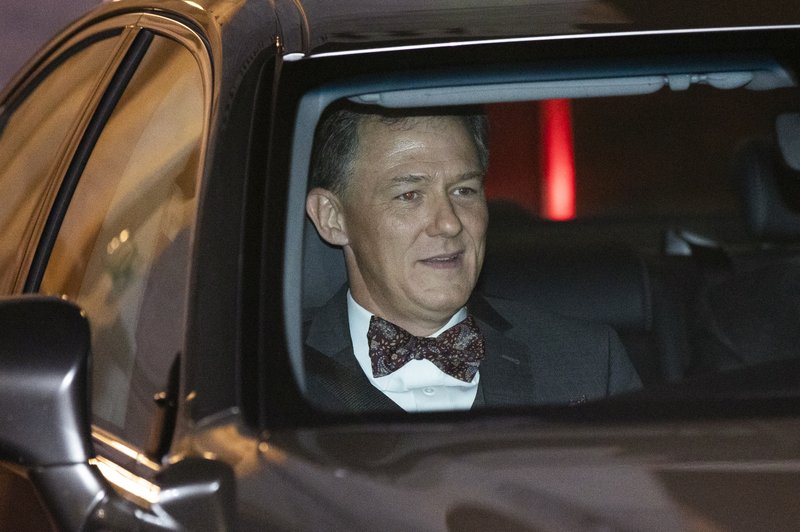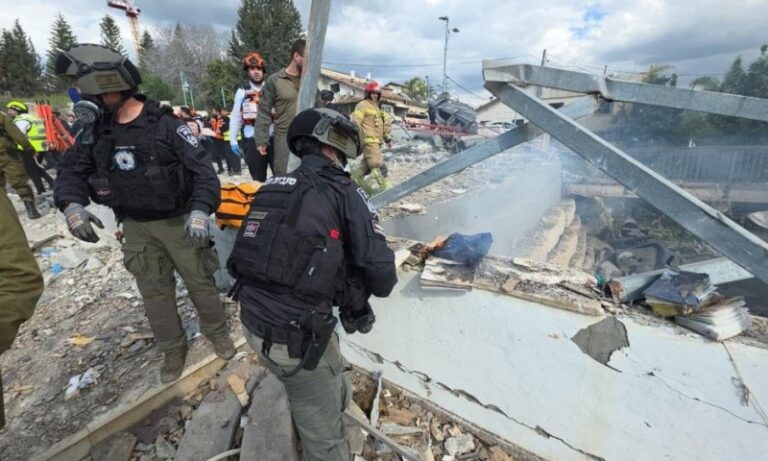There were three words President Donald Trump wanted to hear from the Ukraine president: Investigations, Biden, Clinton.
That’s according to the transcript, released Thursday, of an impeachment inquiry interview with career State Department official George Kent.
“Potus wanted nothing less than President Zelenskiy to go to the microphone and say investigations, Biden and Clinton,” Kent testified.
“That was the message. … Zelenskiy needed to go to a microphone and basically there needed to be three words in the message, and that was the shorthand,” he said.
Kent told investigators that that was his understanding of what Trump wanted Ukraine President Volodymyr Zelenskiy to say in public, based on conversations relayed to him by others in the administration who were in contact with Ambassador Gordon Sondland.
Clinton, he explained, was “shorthand” for the 2016 U.S. presidential campaign. It was a reference to Trump’s view, pushed by his personal attorney Rudy Giuliani but outside of mainstream U.S. intelligence, that Ukraine played a role interfering in the election.
House investigators are releasing key transcripts from their hours of closed-door interviews in the impeachment inquiry as they prepare for public sessions with witnesses next week.
Kent had testified for hours in October, telling investigators that he was instructed to “lay low” on Ukraine policy as administration officials and Giuliani were taking the lead, acting outside of regular foreign policy channels.
Kent said he memorialized in writing the conversations he was having with other diplomats amid his concerns of “an effort to initiate politically motivated prosecutions that were injurious to the rule of law, both in Ukraine and U.S.” The memorandum was submitted to the State Department.
He told investigators he was uncomfortable with what he was hearing about Giuliani pushing the investigations and Trump’s special envoy to Ukraine, Kurt Volker, engaging Ukrainian officials on the subject.
“And I told Bill Taylor, that’s wrong, and we shouldn’t be doing that as a matter of U.S. policy,” Kent said, referring to William Taylor, the top diplomat in Ukraine who has also testified in the inquiry.
In one particularly unsettling scene, Kent describes mounting unease over the Trump administration’s July 25 phone call with Zelenskiy that sparked the impeachment inquiry.
Within days of the call, he was receiving a readout from Lt. Col. Alexander Vindman, an Army officer assigned to the National Security Council who was among the officials listening to the call. Vindman has become a key witness in the House investigation.
Vindman was “uncomfortable” as he gave Kent the readout and unwilling to share much of what was discussed, even over the secure phone line between the NSC and State.
“It was different than any readout call that I had received,” Kent said. “He felt_I could hear it in his voice and his hesitancy that he felt uncomfortable.”
Vindman told him the tone of the Trump-Zelenskiy call was “cooler, reserved” and that Zelenskiy, a former comedian, had tried to turn on the charm.
He said that Vindman told him that “the conversation went into the direction of some of the most extreme narratives that have been discussed publicly.”
Kent also raised concerns about the Trump administration’s firing of Ukraine Ambassador Marie Yovanovitch.
Kent, Yovanovitch and Taylor are expected to appear in the upcoming public hearing.
First to testify next Wednesday will be Taylor, still the top diplomat in Ukraine, who relayed in his closed-door session his understanding that there was a blatant quid pro quo, with Trump holding up military aid to Ukraine, a U.S. ally facing threats from its giant neighbor Russia.
That aid, at the heart of the impeachment inquiry, is alleged to have been held hostage until Ukraine agreed to investigate political foe Joe Biden and the idea of Ukraine interference in the 2016 U.S. campaign.
(AP)












2 Responses
Criminal corruption on a scale exponentially greater than that of Nixon.
Note that these were the words of the accuser, not of Trump. They aren’t even hearsay. The person making the accusation is stating an opinion of what he thought Trump wanted. Unless the person has the power to read minds, it at worst shows that anti-Trump employees were putting words into Trump’s mouth based on what they thought he would say, if he talked to them, which he didn’t.
The transcript of what Trump said contradicts them.